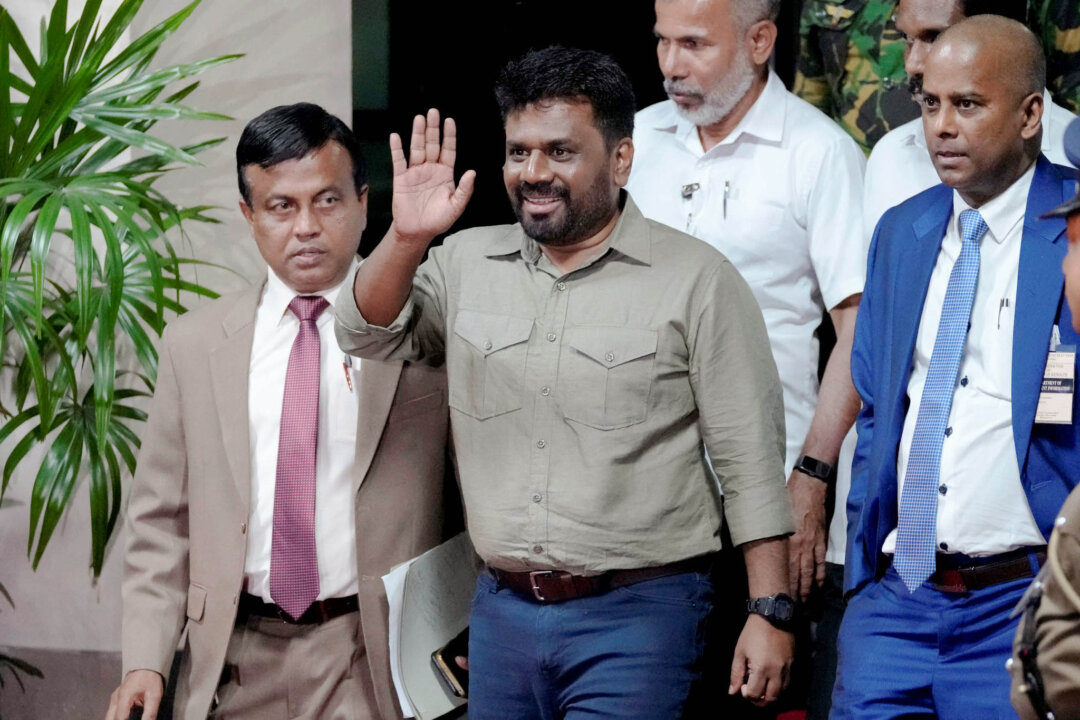The National People’s Power coalition has secured a five-year term in the country’s snap elections.
Sri Lankan President Anura Kumara Dissanayake’s Marxist-leaning party has won the Nov. 15 snap parliamentary elections, with his National People’s Power coalition now set to steer the island nation for the next five years.
Dissanayake’s party won 159 of the 225 elected district seats and allocated seats in Parliament, according to the Elections Commission.
Meanwhile, the Samagi Jana Balawegaya, or United People’s Power Party—led by opposition leader Sajith Premadasa—had 40 seats and was in second place, according to the Elections Commission.
Dissanayake, 55, had defeated incumbent Ranil Wickremesinghe, opposition leader Sajith Premadasa, and 36 other candidates in September’s elections.
Still, the anti-corruption campaigner and political outsider needed a clear majority in Parliament to deliver on key policies aimed at tackling rampant corruption, poverty, and soaring inflation in the wake of the island’s worst-ever economic crisis—in 2022, Sri Lanka defaulted on debt for the first time since its independence from Britain in 1948, causing its economy to shrink by 7 percent.
Dissanayake’s coalition had just three of Parliament’s 225 seats before the snap election, prompting him to dissolve it to seek a fresh mandate.
In a major surprise and what has widely been seen as a shift in the country’s electoral landscape in recent months, Dissanayake’s party won the northern district of Jaffna, home to much of the island’s minority Tamil community, as well as many other minority strongholds.“We see this as a critical turning point for Sri Lanka,” Dissanayake said after casting his vote on Nov. 15. “We expect a mandate to form a strong Parliament, and we are confident the people will give us this mandate.
“There is a change in Sri Lanka’s political culture that started in September, which must continue.”
Sri Lanka, a nation of 22 million, is facing a cost of living crisis worsened by food and fuel shortage. According to the World Food Programme, 26 percent of the population lives below the poverty line.
The country is also currently in the middle of a bailout program with the International Monetary Fund (IMF), with debt restructuring with international creditors nearly finalized.
The country entered the debt restructuring deal with countries including India, France, Japan, and China under President Ranil Wickremesinghe, who ousted President Gotabaya Rajapaksa in 2022.
Dissanayake, who previously enjoyed a brief stint as agriculture and irrigation minister, said during his presidential campaign that he would introduce significant changes to the targets set in the IMF deal signed by Wickremesinghe, citing concerns over the burden that it may place on Sri Lankans.
The country’s new president has since changed his stance and said the country will continue with the agreement in place.
Reuters and The Associated Press contributed to this report.

